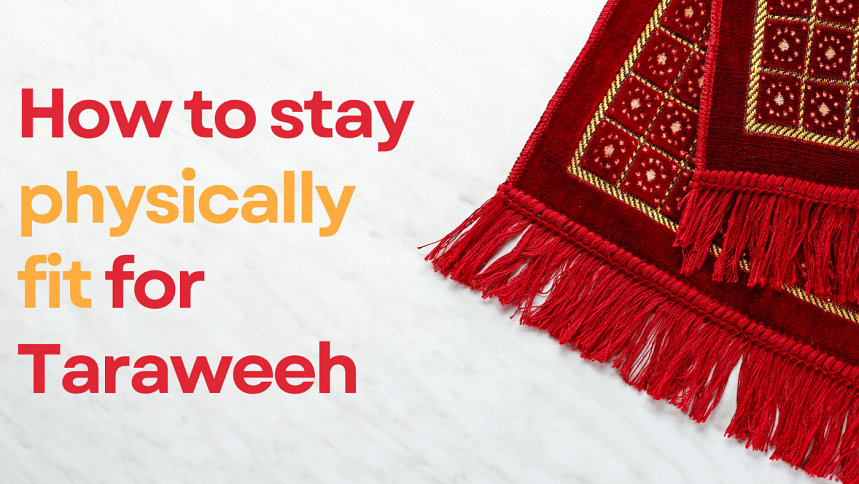How to stay physically fit for Taraweeh

One of the best experiences of Ramadan is the beauty of the night prayer – performing Taraweeh and Tahajjud. Ramadan is more than just fasting and Taraweeh is an integral part of it. However, it can prove to be physically exhausting for a lot of people. With these tips, you can make the most of this holy month and keep yourself physically fit for Taraweeh.
Break your fast in a healthy way
This is easier said than done, especially keeping in mind the range of fried delicacies that are available. Eating a lot of greasy food makes the body lethargic so make sure you maintain a balanced diet while having iftar.
While it's okay to enjoy fried snacks, try to include fruits as well as proteins in the platter. This goes a long way in terms of keeping you active and feeling well-rested for the rest of the night. You could also get your punch of caffeine after Maghrib to feel energised.
Avoid overeating after a long day of fasting
Most of us can relate to the feeling of our body giving up right after iftar. This happens primarily due to overeating. In order to make up for the long hours of fasting, we typically tend to eat larger meals which leads to feeling bloated.
In order to avoid this, it is best to stick to pre-Ramadan meal proportions. For example, if you are used to eating just two servings of rice every day, follow a similar pattern for iftar.
Remember to stay hydrated
Hydration is the key to wellness during Ramadan, and it is essential to ensure that you drink ample amounts of water after a long day of fasting. This is especially important given the hot weather and higher chances of dehydration. Water not only cleanses your body but also replenishes it for the rest of the day. Another trick is to avoid too much sugar as it dehydrates the body very quickly. Keep a water bottle with you at all times, and take short water breaks at regular intervals.
Try out light exercise
Taraweeh is a long prayer and can be tiring especially after fasting for such a long period of time. In order to avoid this fatigue, you could engage in light exercise to familiarise the body with quick movements after hours of inactivity. Your body will remain active as a result, and blood circulation will be enhanced. This will also do wonders in terms of keeping the body healthy for work or classes the next day.
Rewind and take proper rest
Ideally, you should get enough rest throughout the day to keep yourself ready for Taraweeh prayers. But this might be difficult given that most of us have classes or offices during the day.
In this case, try to take a quick nap after the prayers. It recharges the body and feels like a reward you achieved after completing the day's Taraweeh prayer. Additionally, if you are not praying at the mosque, you could also take short breaks between the prayers to rest.
Maisha Islam Monamee is a student of IBA, DU, and a freelance journalist who likes reading, scribbling, and blogging. Follow @monameereads on Instagram.

 For all latest news, follow The Daily Star's Google News channel.
For all latest news, follow The Daily Star's Google News channel. 









Comments